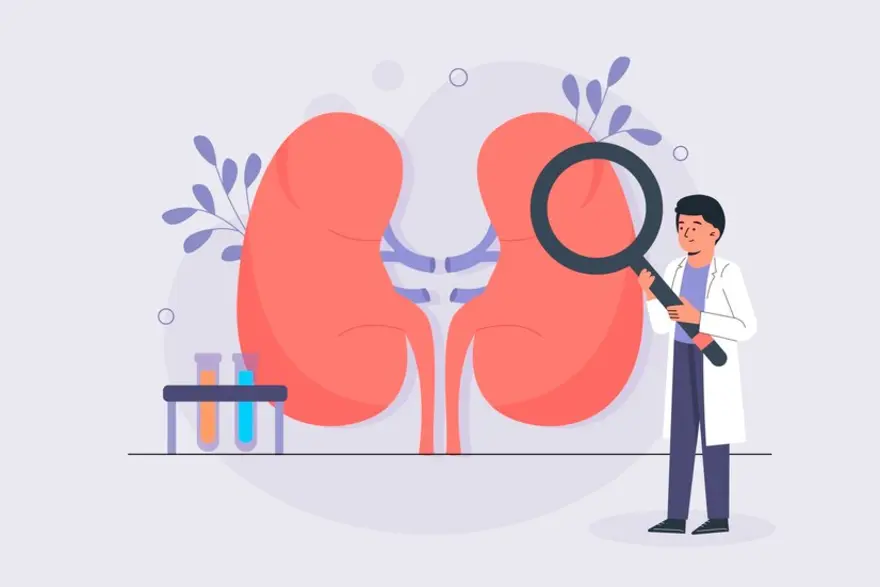Preventive Healthcare
Understanding Bell's Palsy: Symptoms, Causes, Treatment, and Types
1110 Views
0

What is Bell’s Palsy?
Bell’s palsy is a condition characterized by sudden, temporary weakness or paralysis of the muscles on one side of the face. This occurs due to inflammation or compression of the facial nerve, which controls facial movements.
Bell’s palsy can affect anyone but is most common in people aged 15 to 60. The exact cause of Bell’s palsy is not known, but it is often associated with viral infections. The condition typically results in a drooping appearance on one side of the face, affecting facial expressions such as smiling or closing the eye. Bell’s palsy can also cause loss of taste sensation and increased sensitivity to sound.
Is Bell’s Palsy a serious condition?
Bell’s palsy is generally not considered a serious condition, though its sudden onset can be alarming. Most people with Bell’s palsy recover fully within three to six months, though some may experience lingering symptoms or mild facial weakness.
Although Bell's palsy itself is not life-threatening, it can cause significant temporary discomfort and affect daily activities. Immediate medical attention is important to rule out more serious conditions, such as stroke, which can cause similar symptoms. Early treatment of Bell's palsy, including medications and physical therapy, can aid recovery and improve outcomes.
How common is Bell’s Palsy?
Bell's palsy affects approximately 15-30 people out of 100,000 every year. It affects men and women equally across all age groups but is less common before age 15 or after age 60.
What are the symptoms of Bell’s palsy?
Bell's palsy symptoms include sudden weakness or paralysis on one side of the face, leading to a drooping appearance. This can cause difficulty in making facial expressions, such as closing the eye or smiling.
Additional Bell's palsy symptoms may include drooling, pain around the jaw or behind the ear, increased sensitivity to sound in one ear, headaches, and changes in the amount of tears and saliva produced.
Bell’s palsy can also cause loss of taste sensation on the front two-thirds of the tongue. The onset of symptoms is usually rapid, reaching their peak within 48 hours.
What causes Bell’s palsy?
The exact Bell’s palsy causes are unknown, but they are often linked to viral infections. Viruses such as herpes simplex, which causes cold sores, are believed to contribute to the inflammation and swelling of the facial nerve, leading to Bell’s palsy.
Other potential viral triggers include the Epstein-Barr Virus, which causes mononucleosis, and the varicella-zoster virus, which causes Chickenpox and Shingles. In some cases, Bell's palsy can be associated with autoimmune reactions, trauma or other conditions such as Lyme's Disease. Despite an in-depth research, the precise mechanisms behind Bell's palsy remain unclear.
What are the risk factors for Bell’s Palsy?
Factors that may increase your risk of developing Bell's palsy include:
- Diabetes
- Pregnancy (Especially during the Third Trimester)
- Viral Infections like Cold Sores and Genital Herpes
How is Bell’s Palsy diagnosed?
Bell's palsy diagnosis is primarily based on clinical symptoms and a thorough physical examination. Doctors look for the characteristic one-sided facial droop and assess the extent of facial muscle weakness.
To confirm the diagnosis of Bell’s palsy and rule out other conditions such as stroke or tumors, doctors may use imaging tests such as MRI or CT scan. Additionally, electromyography (EMG) can measure the electrical activity of facial muscles and help determine the severity of nerve damage. Blood tests may also be conducted to check for infections or other underlying health issues that may be causing symptoms similar to Bell’s palsy.
How is Bell’s palsy treated?
Bell's palsy treatment includes drugs such as steroids to reduce inflammation and antiviral drugs in the presence of viruses. Analgesics or moist heat can alleviate pain. Physiotherapy can also be an advantage when stimulating the facial nerve. In some cases, alternative therapies such as acupuncture or vitamin therapy can be considered.
Protecting the eyes from drying out is an important part of Bell's palsy treatment and care, as most patients are unable to close their eyes properly. This may include using eye drops or ointments during the day or using a moist room at night.
How can I prevent Bell’s palsy?
While there are no guaranteed ways to prevent Bell's palsy, some measures might reduce the risk:
- Maintain a healthy lifestyle to prevent diseases such as diabetes and hypertension that can increase your risk.
- Regular exercise and stress management can strengthen your immune system and lower the chances of viral infections.
How long does Bell’s Palsy last?
Bell's palsy can cause facial weakness that worsens over the first few days, then gradually improves. Most people are starting to improve within two weeks of the initial start of the Bell's palsy symptoms, but complete recovery can take three to six months.
Is Bell’s Palsy permanent?
In most cases, Bell's palsy is temporary. Symptoms usually begin to improve within a few weeks, with full recovery taking about six months. A small percentage of people still have mild but permanent facial weakness or other complications.
What is the outlook for people with Bell’s Palsy?
The prognosis for the people with Bell's palsy is generally very good. The recovery process varies from person to person, but with a prompt treatment and proper eye care, most patients return to normal facial function.
Conclusion
Although dealing with Bell's palsy may initially feel overwhelming, understanding its causes, symptoms, treatment options, and preventative measures can empower you on your recovery journey. Stay proactive about your health by scheduling regular checkups, maintaining a balanced lifestyle, and consulting your doctor whenever necessary.
For more comprehensive health insights or diagnostic services including at-home blood sample collection, consider Metropolis Healthcare. With a team of skilled professionals and advanced diagnostic labs across India, Metropolis ensures accurate pathology testing is delivered right to your inbox or via their user-friendly TruHealth app. Remember that prioritizing your health is always within reach with knowledge and access to quality healthcare services.













1701259759.webp)









 WhatsApp
WhatsApp